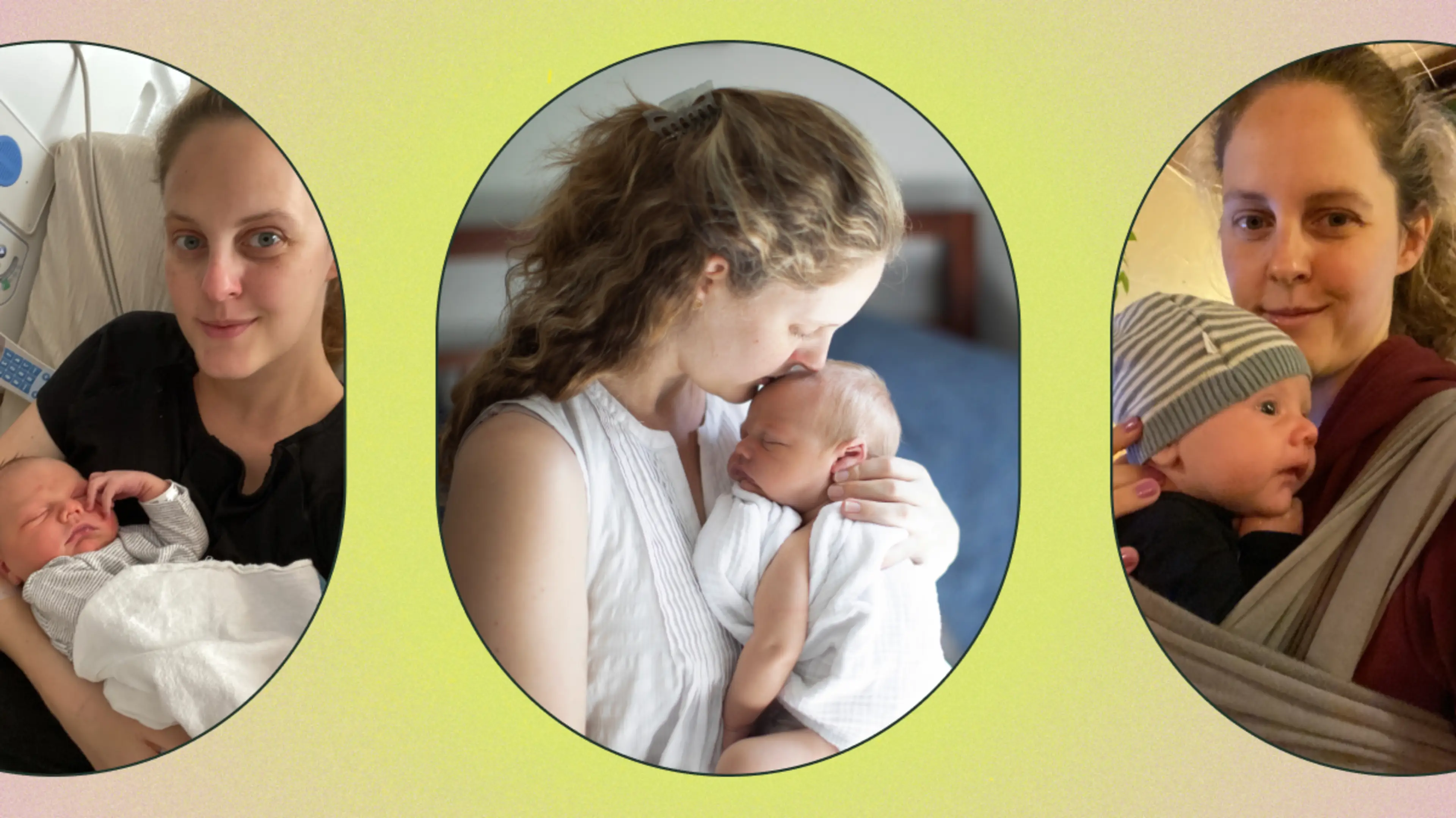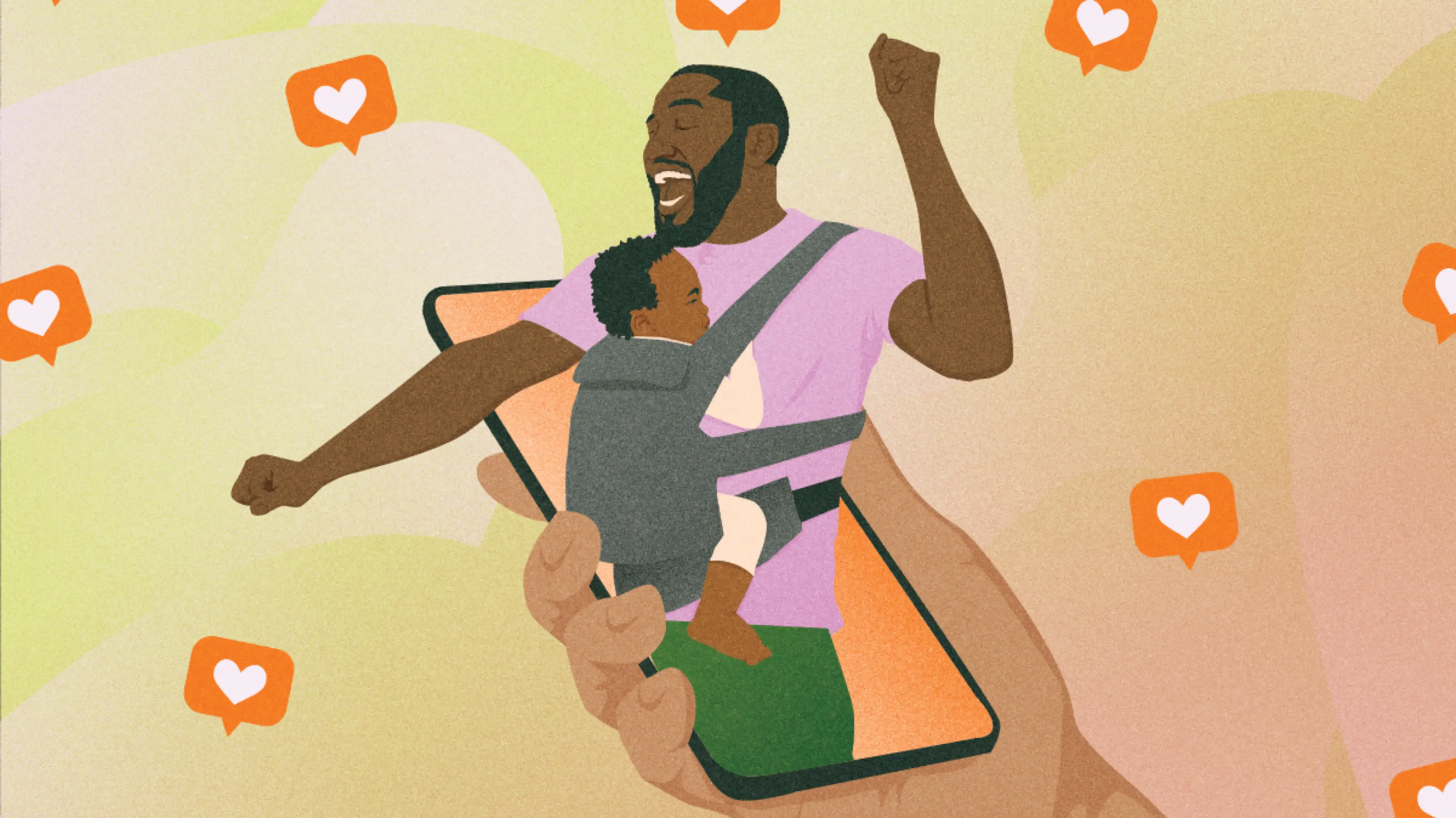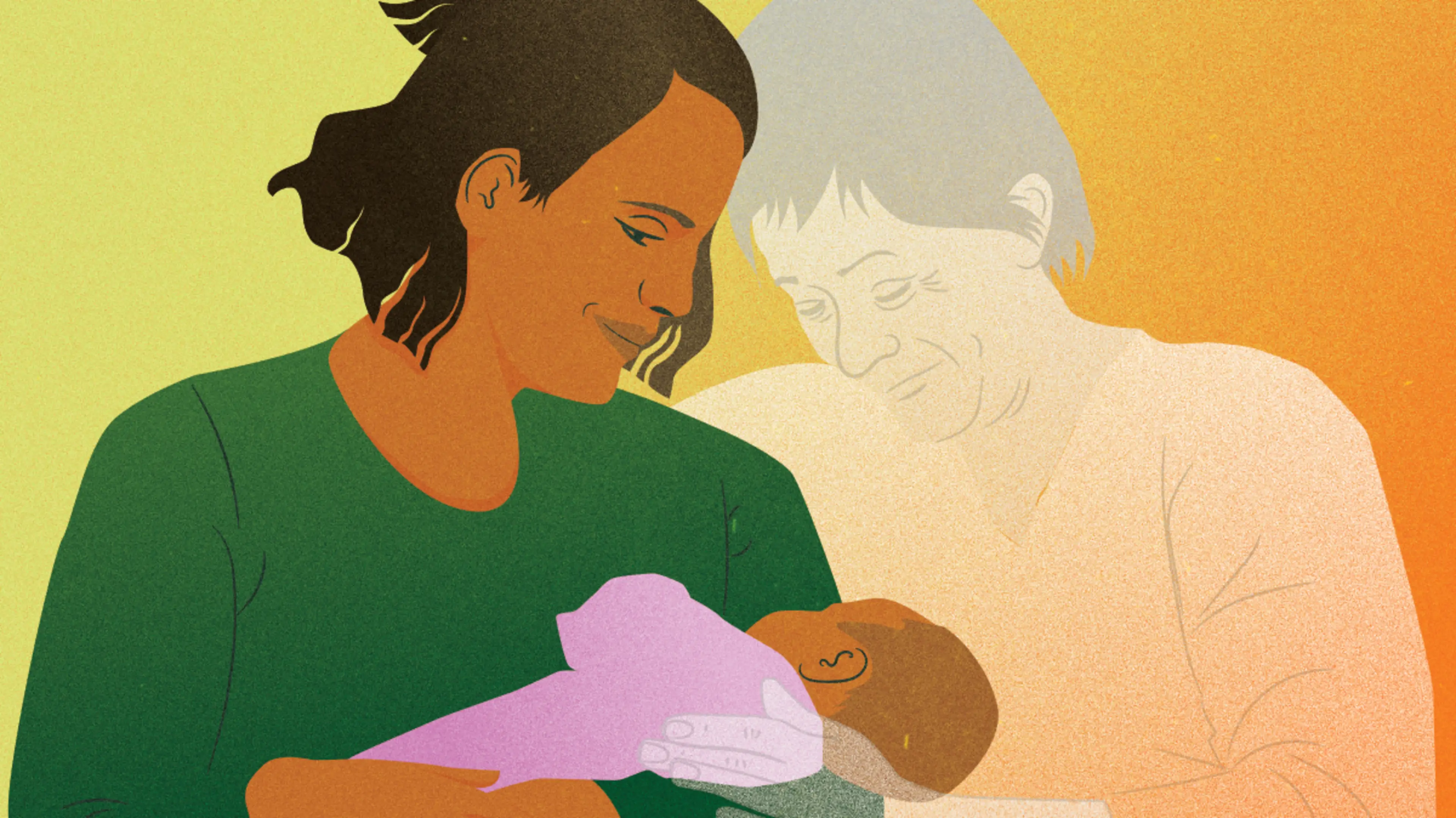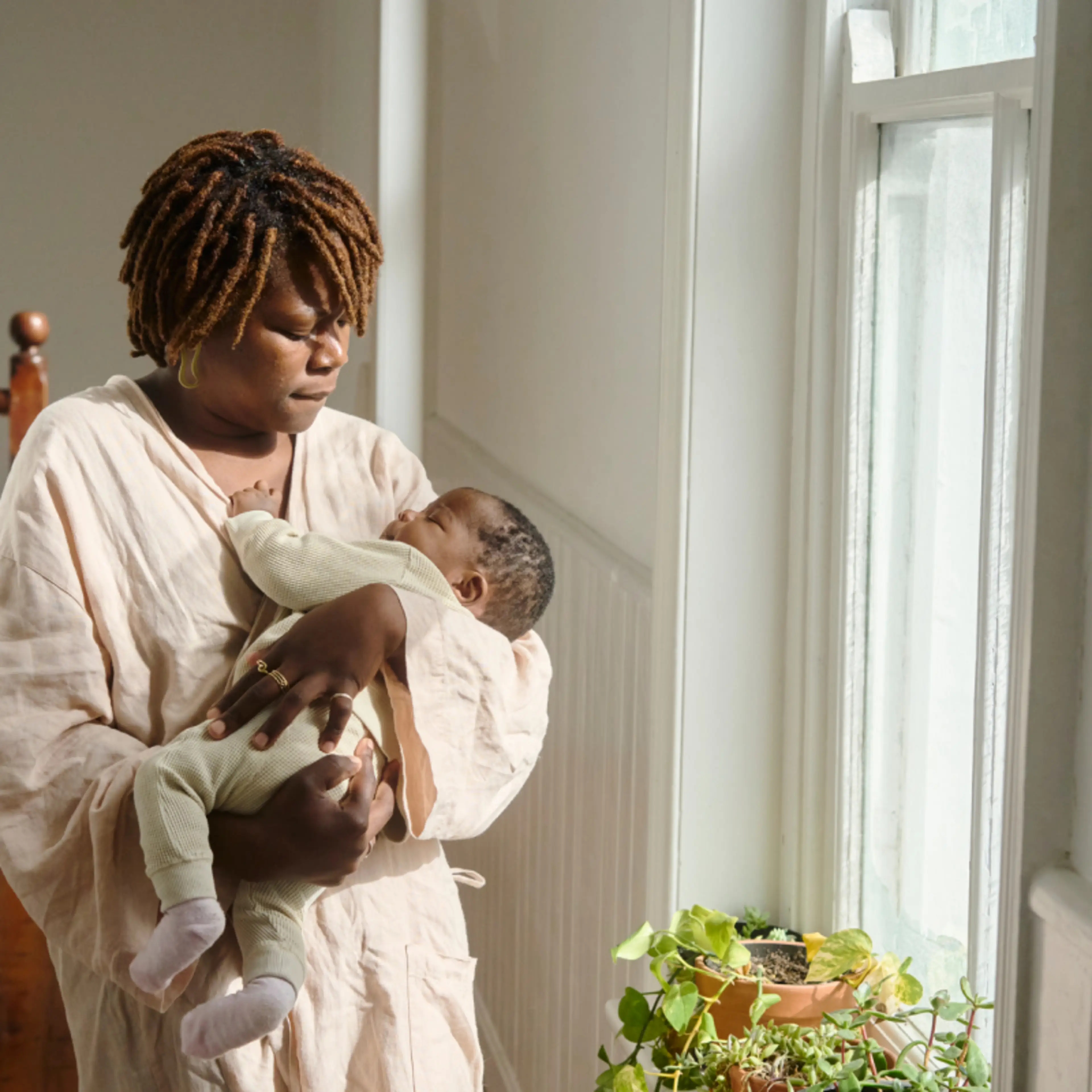Ask a new mom if she’s had the chance to take a nature bath lately, and she’ll likely laugh in your face. She might even let you know that her only wish is to take a regular bath in peace (baby not included). Yet, practices like heading out into the forest and simply enjoying nature might be exactly what she needs, especially if she’s part of the one in seven moms suffering from a postpartum mental health condition, such as anxiety or depression (PPA or PPD).
It’s not just postpartum people with mental health concerns who might benefit from nature, but all people. According to a 2022 review and meta-analysis1 of seven studies from seven different countries, nature walks always improved the symptoms of depression and anxiety. According to the research, not only is going on a walk beneath the trees cost effective (it literally costs nothing), but it gives a touched-out, cried-out mom some much-needed quiet time.
What Is Postpartum Depression and Anxiety?
Postpartum depression and/or anxiety generally lasts three to six months, but varies greatly. A shocking half of mothers with postpartum depression aren’t ever diagnosed.
Some of the symptoms of PPD2 might make you feel like you just don’t want to do anything, even things you loved doing before. You might feel like you are a terrible mom or person (you’re not!), have no energy to even get out of bed in the morning, or feel like you can’t concentrate on washing those bottles, let alone working. Some moms might notice their weight changing, as if pregnancy related weight fluctuations weren’t enough, and might want to eat more or less than they did before. You might also struggle to sleep—way beyond the pure exhaustion that is already waking up multiple times per night with the baby’s feeding schedule.
Those with PPA can have some similar symptoms, but they also might experience additional or different ones. For example, you might feel your heart racing, start to sweat, or feel like you can’t breathe—all symptoms of a panic attack you didn’t see coming on, even in regular, everyday locations like playgroups or the park. And of course, you might end up staring at that baby into the wee hours of the night, terrified of SIDS and global warming and all the scary things in the world, rational or not.
New moms are generally screened for postpartum mood disorders at their six-week postpartum check up at the ob-gyn or midwife, but there are some challenges to catching people who need help during this one appointment. As Dr. Shannon Scott Schellhammer, an Obstetrician-Gynecologist at Orlando Health Women's Institute shares, “A single postpartum depression screening tool may not detect all patients affected by postpartum depression.” The reasons, she says, include:
Fear or stigma around how they answer the questions
Mistrust in the healthcare system or safety of medications
Not feeling ready to open up emotionally
The timing of the screening
Not being honest because of who is with the person at the appointment
Literacy and/or language barriers
“So it is important to use the validated screening tools but also have a conversation with the patient and also use your intuition as a clinician if something is wrong,” says Dr. Scott Schellhammer.
Getting Outside Can Help You Heal After Having a Baby?
Bathing in a forest’s beauty is not, in itself, likely to solve PPA or PPD. Think of it more as just one tool in your toolbox of strategies, and a serious mood booster, too. Research shows that being exposed to sunlight and fresh air is linked to improved mental health. That’s why Dr. Scott Schellhammer is a big fan of postpartum moms heading into nature.
“We know environmental factors have a huge role on health…in the postpartum period your body is going through hormonal changes, you are having changes in your blood volume, your body is regulating its temperature differently, you have mood changes,” she says. “Being outside in those natural elements and being exposed to things like Vitamin D, and getting your senses away from maybe being in the room you’ve been staying in, being in bed, getting out and walking around, it’s going to help your circulation.”
We’re not talking about hiking a fourteener, either, it’s really just about getting outside, says Dr. Scott Schellhammer, who highly recommends walking. “You can do it from day one when you get home, even if you’ve had a C-section,” she says.
Walking outside releases natural cortisol hormones that help you feel better, she says, adding that she took advantage of this herself after having a November baby. As a resident doctor with a short maternity leave, she says getting out in the mild Florida weather helped her ease back into her own life. “I just went out and was going on walks and it helped me reconnect to society, and helped me recover faster.”
What the Research Says
While there is research on how being in nature can help with depression and anxiety, there isn’t a ton that focuses specifically on perinatal mood disorders. That said, going on walks, taking your baby on a stroll to the park, or simply sitting outside in the sun (with sunscreen on, of course) certainly won’t hurt you. Plus, budding research does show that moms who get outside feel a greater sense of wellbeing and connection to their babies.
In fact, a 2023 study3 found that women who spent time in nature during the postpartum period had babies that slept better, which led to the mothers sleeping better. (Not only do we know getting more sleep has a positive effect4 on postpartum mental health, but too much lost sleep increases postpartum mental health risks at the six month mark.5 ) The study also found that the women’s overall mental and physical health were better, and also gave them the ability to connect with their babies without the pressures and responsibilities of home.
But, not everyone has equal access to green spaces, or has been able to make getting outside a priority. This is a problem that Penn State assistant professor Dr. Eugenia South studied in a pilot trial6 called Nurtured in Nature as part of her research on nature’s impact on PPD, in which she studied predominantly Black postpartum moms, creating plans and commitments for them to experience nature. One study participant had created a “mental barrier” for herself, since there were safety issues in her neighborhood, telling herself that she really couldn’t go out. “Once we did the nature walk together, we discovered gardens in the neighborhood. She completely relaxed. She decided she wanted to build her own community garden on her block so that her children and those around her could experience it,” one of the study leaders explained.
In a PennToday article7 , Dr. South also shared that “nature can be leveraged as a health equity tool.” It isn’t a “cure-all,” she writes, but it can be a potential buffer to prevent life stress from getting under your skin and having poor health outcomes.
If getting out of the house isn’t possible right now, there are still ways nature might be able to help you. A 2023 study8 examined how virtual nature can aid in the treatment of anxiety. While the study focused on general anxiety rather than PPA, researchers found that episodes of panic and worry decreased with exposure to daily virtual nature, such as 360-degree videos of forests, beaches, water, and more. So, the next time you feel stuck in a worry loop and you’re stuck in the house, try putting on a relaxing nature video and see if you feel any better. You just might!
How Other New Moms Have Found Solace in Nature
Sometimes it’s not just nature that has a magical healing effect, but the fact that nature is often paired with connection and community, or exercise. Laurie Syphard, a mom of two in Baltimore, had PPA and Obsessive Compulsive Disorder (OCD) for four months after giving birth to her first daughter. PPD popped up again with her second child, when she was around 6 months old, but it only lasted a month or two, which she credits with spending a lot of time outside.
Because of her experience—and the benefits she saw after taking hikes with her infant in a carrier—Syphard founded a chapter of Hike it Baby (now called Outgrown) for new parents and babies in her city. It’s a nonprofit organization with specific programming for new parents, with education and support around the benefits of going outside through their Turn the Blues Green program (a reference to postpartum blues).
Syphard calls the entire experience “therapeutic.” “We were able to find peace in the woods and community with each other. We connected over kid things and nature things and more than anything, it was just great to have a place to go with little kids on a weekly basis,” she says.
“Being out in nature with like-minded parents and caregivers really helped me with emotional regulation not only when I was out there but for the rest of the day it was a consistent practice that helped me stay grounded and calmer when parenting two young children, while also struggling with postpartum mood disorders,” she says, adding that it had a “healing effect” on her PPD. “I continue to suggest it to new moms along the way because I know how impactful it was.”
So, whether it’s nature and community, nature and exercise, nature and sunshine, or nature and alone time, consider what benefits adding that “and” to nature can have for your mood and overall well-being too. After all, moms are quite efficient multitaskers. But, if you need a break, just standing out in nature without an “and” is effective too.
How To Incorporate Nature Into Your Postpartum Routine
Nature itself hasn’t been shown to prevent or cure PPD, PPA, or other mental health disorders postpartum, and shouldn’t take the place of open conversations with your medical team. Sometimes they might recommend medication, therapy, and other interventions, alongside spending time outside, to ensure your safety and recovery postpartum.
For moms who are simply looking to add tools to their toolbox for easing the challenges of PPD and PPA, heading outside into greenery can go a long way. Here are a few ways to give it a try:
Keep it short and sweet: Research shows that even a 15-minute walk has benefits.
Bring your baby with you: Dr. Scott Schellhammer says that taking your baby out into the sunshine can help them regulate their circadian rhythms and learn night from day, which will in turn help you sleep better and heal.
Plan ahead: Take water and a phone, along with sunscreen, to ensure you are safe and prepared for your nature experience.
Focus on what part of nature is calling you: If hiking or walking doesn’t sound fun, find a shady spot under some trees to rest in or read a book. If biking or climbing are your jam, lean into that. Also, consider heading to parts of nature in your town you haven’t seen before for a deeper and more novel experience.
Sometimes a walk outside is all it takes to clear your mind on a particularly challenging day. And who hasn’t experienced the magic of taking your colicky baby outside, only for them to instantly stop crying as they stare in wonder at the trees? There is something healing about nature that science is only beginning to unravel, and getting outside is just one small way for new moms to feel a little more like themselves on this wild journey through postpartum.











